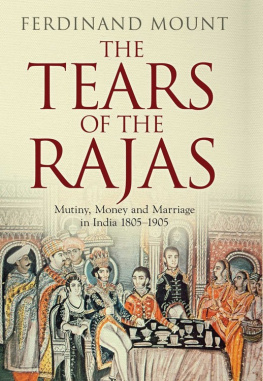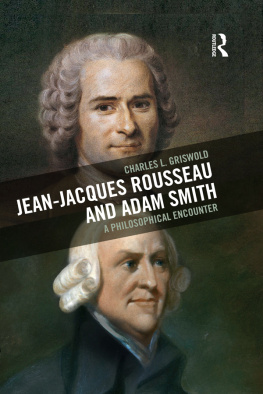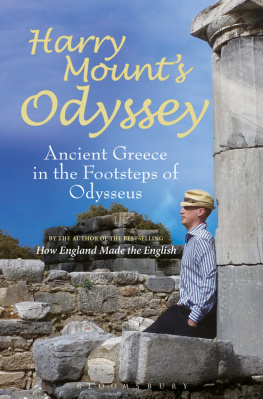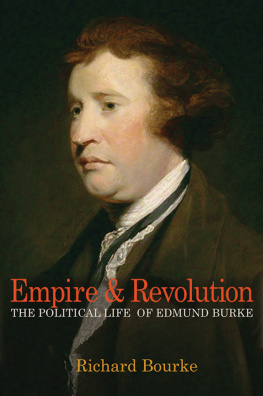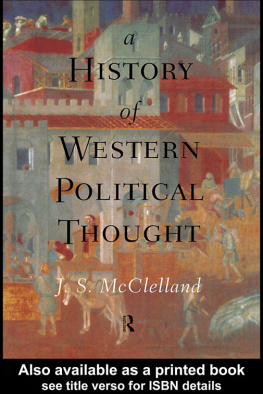In memory of David Miller
The science of political right is yet to be born, and it is to be presumed that it never will be born.
JEAN - JACQUES ROUSSEAU ,
Emile , Book V
The science of politics is in its infancy.
MARY WOLLSTONECRAFT ,
A Vindication of the Rights of Woman
All faiths constitute a revelation of Truth, but all are imperfect and liable to error. Reverence for other faiths need not blind us to their faults.
M . K . GANDHI ,
From Yeravda Mandir , Chapter X
INTRODUCTION
THE FATAL BLANDISHING
There is a chamber cut into the rock face at Mount Rushmore. Inside it you can see the texts of the American Declaration of Independence and the Constitution of the United States reproduced on porcelain enamel panels. On the cliff above, Thomas Jefferson, the author of that Declaration, stares out over the Dakota plains in lofty serenity. Of the four presidents carved on Mount Rushmore, only Jefferson can lay claim to be a great political thinker. How his opening lines still sing out to us: We hold these truths to be self-evident, that all men are created equal, that they are endowed by their Creator with certain inalienable Rights, that among these are Life, Liberty and the pursuit of Happiness.
Yet at the time, Jeffersons Declaration didnt make much of a splash. The acidulous John Adams, later to become president with Jefferson as his Veep, called it a commonplace compilation, its sentiments hacknied in Congress for two years before. Three hundred miles away in Richmond, some weeks earlier, the Commonwealth of Virginia had already drafted its own Declaration of Rights, in wording almost identical to Jeffersons, down to Life, Liberty and the pursuing of Happiness. The Virginia Declaration was mostly written by George Mason, of whom nobody much outside Virginia has heard (hes not even the original of the MasonDixon Line). As for the Constitution of the United States, Jefferson was in Paris the whole time it was being drafted, and he didnt think much of the text when they sent it to him. Yet it is Jefferson who still hogs the imperishable glory of inventing American democracy.
In the same way, it is to Jeremy Bentham that posterity has awarded the credit for the coining of that indelible mantra of the Utilitarians: the greatest happiness of the greatest number. Years later, Bentham wrote an excited account of his discovery of the phrase, talking of himself in the third person, as great men sometimes do. Browsing in the library of Harpers coffee house near his Oxford college, Queens (he was a child prodigy and the youngest undergraduate the university had ever had), he had chanced upon the phrase in a pamphlet by the great scientist-philosopher Dr Joseph Priestley: At the sight of it he cried out, as it were in an inward ecstasy like Archimedes on the discovery of the fundamental principles of hydrostatics, Eureka . As it happens, the actual phrase occurs nowhere in Priestleys works, although something like it can be found there and in the writings of earlier philosophers all over Europe, including the Italian Beccaria, the French Helvtius and the Irish Francis Hutcheson. Not quite such a eureka moment then.
Sometimes it is not the authorship but the circumstances of the resonant phrase that are not quite what they seem. Theres no doubt about who composed that unforgettable opening line of The Communist Manifesto : A spectre is haunting Europe the spectre of communism. Karl Marx dashed the whole thing off in six weeks, with a little sub-editing from Friedrich Engels. But what a huge claim it makes. In reality, the Communist League was only a few months old, having just changed its name from the League of the Just, itself a fairly insignificant group of revolutionary migrs, many of whom werent sure they wanted a manifesto at all. It was only after a bad-tempered wrangle at the Leagues Congress in Soho at the beginning of December 1847 that Marx and Engels secured the commission to write one. Neither the League nor the manifesto played much part in the revolutions that swept across Europe in 1848, except in Germany. After further internal wrangles, the League disbanded in 1852, and the manifesto disappeared from view until the 1880s. Far from haunting the minds of a continent, communism was mostly haunting the minds of Marx and Engels. They were not reporting the existence of a spectre, they were setting out to create one.
There is a larger audacity, a more boundless presumption about the manifesto. At the time when Marx issued his final trumpet call Workers of the world, unite! You have nothing to lose but your chains! he had scarcely met any flesh-and-blood workers. A lawyers son from the prosperous Jewish bourgeoisie of the Rhineland, he had mixed almost exclusively with philosophers and journalists. At the age of nearly thirty, he knew nothing of industrial life. How could he be sure that the workers of the world would ever wish to unite across national boundaries (as 1914 was to prove so calamitously, they didnt)? How could he claim to have any legitimate clue about what sort of society they might wish to live in?
Giuseppe Mazzini was equally ignorant of his huge target audience when he sent out a stream of clarion calls for a united Italy from his hideout in an attic above a Chelsea post office. Before he had been exiled to England, he had scarcely seen anything of Italy outside his native Genoa. When he became briefly ruler of the Roman Republic in 1849, it was his first-ever visit to the Eternal City. He had no idea whether the inhabitants of Naples and Italy thought of themselves as Italians at all, still less of the views of the German-speaking peasants of the Alto Adige (it is doubtful whether he even knew that so many of them spoke German). In fact, he soon became uncomfortably aware that peasants all over Italy were conspicuous by their lack of aspiration to nationhood, confining their loyalties to their local patch. Scarcely a single contadino was to join Garibaldis Redshirts.
There is a no less daring innocence about the two greatest pioneers of sexual liberation in England, Jeremy Bentham and Mary Wollstonecraft. When the latter wrote A Vindication of the Rights of Woman in her early thirties, she had never had a serious boyfriend. Bentham was a lifelong celibate. Their combined experience of relations between the sexes was then close to zero, although Mary was to have a bucketful in the last few years of her life, most of which confirmed her views. Yet they shared a heroic disrespect for the old taboos and conjured up a universe of free sexual relations, unconstrained either by convention or the law, and kicked over centuries of moral teaching without a backward glance.
Such pioneers are not deterred by practical hitches. Gandhis insistence that India should return to village life, the tradition of the spinning wheel and wearing homespun cloth, the khadi , entranced his contemporaries and has since attracted simple-lifers the world over. Yet Mohandas Gandhi was himself essentially a city-dweller, and had never spent more than a few nights in any village. When the campaign got under way, his followers discovered to their chagrin that there were few spinning wheels in working order to be found, and even fewer teachers of the craft available. By this time, the cotton mills of India had finally managed to overcome the competition from Lancashire, and the country was self-sufficient in cotton.
If these are failings, they are noble, or at any rate excusable. But the later disciples often discovered that their heroes had other, less palatable flaws Gandhis cruelty to his own children being one painful example. The editors of the abundant correspondence between Marx and Engels all too often came across repellent wisecracks about Jews and blacks that they felt compelled to excise. The standard biographers of Thomas Jefferson, notably Dumas Malone in his six volumes, played down or omitted altogether Jeffersons obsession with the inferiority of African Americans and his urgent determination to arrange for as many of them as possible to be shipped back to Africa, not to mention his harsh treatment of his own slaves and his reluctance to free them, even on his death, as other slaveholders such as George Washington often did. Benthams editors had a different problem: their heros vicious mockery of all organized religion. This stuff had to be kept out of Sir John Bowrings massive edition of Benthams works, for fear that it might discredit his ingenious political schemes.


